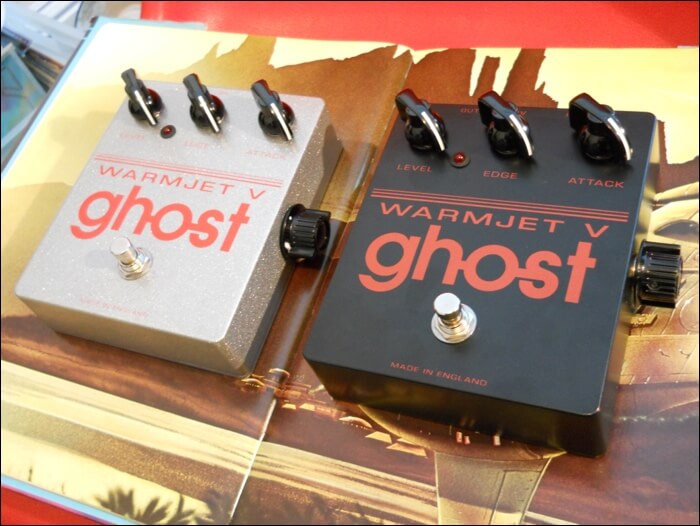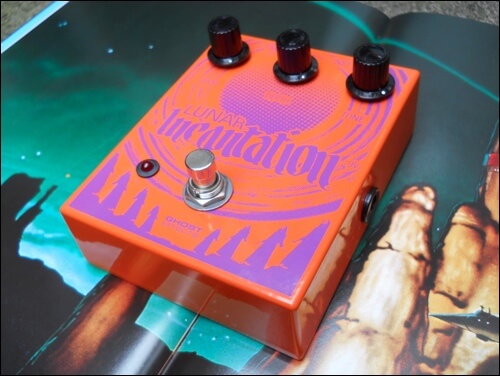Ian Sherwen, who makes and sells guitar pedals under the name Ghost Effects from his home in Birmingham, is an equally loyal customer of Rapid. He has always used effects pedals but it is only relatively recently that he has become involved in making them.
Ian's are an attractively-designed range of effects with names like 'Lunar Incantation', 'Warmjet V' and 'Silicon Pep Box'. They are usually inspired by vintage boxes which Ian embellishes, for example by adding features such as tone control through output capacitors.
"The Warmjet is based on the WEM Project V pedal made famous by Brian Eno on his Here Come the Warm Jets album", says Ian. "It's still very much under the radar but Freddie Cowan from The Vaccines bought two last year." The 'Silicon Pep Box' is a version of the WEM Rush Pep Box from the 1960s that was allegedly used by The Beatles on Revolver, and was featured on some of the early recordings by Birmingham indie electronica band Broadcast. Ian's version is based on the original unit borrowed from Tim Felton of Broadcast/Seeland.
Ian takes as much care about the look of his effects as their 'guts' or circuitry. He uses nothing but 'Eddystone' die cast aluminium enclosures for his cases, having them professionally powdercoated and screenprinted with vivid colours and striking designs. You don't have to be a guitar player or even a big music fan to see the appeal of these hand-made devices, with their vintage switches, components and analogue audio aesthetic – or the satisfaction that comes from making and testing them.


